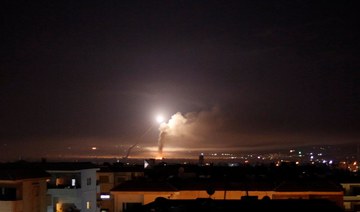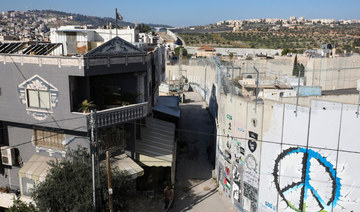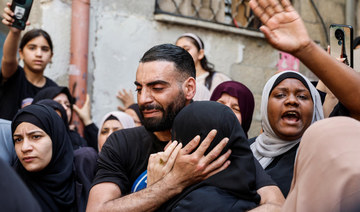AMMAN: An International Criminal Court (ICC) ruling that it has jurisdiction over war crimes committed in Israeli occupied territories has been hailed by Palestinian officials, who say the decision offers new hope for victims to access justice.
The decision by a three-judge tribunal on Friday will open the way for investigations into the expansion of Israeli settlements and alleged Israeli army violations of humanitarian law during the 2014 Gaza invasion, as well as Hamas’ rocket attacks on Israeli civilians.
In its decision, the ICC said that its jurisdiction “extends to the territories occupied by Israel since 1967, namely Gaza and the West Bank, including East Jerusalem.”
Hanan Ashrawi, a former member of the Palestine Liberation Organization’s executive committee, told Arab News that the ICC decision meant Israel will be “held to account.”
The ruling also showed that the court had refused to bow to intimidation by the Donald Trump administration, she said.
“Under Trump, they attacked the court and when that failed, they went after the prosecutors personally. They have been obsessive in their attempts to pressure and blackmail anyone who holds Israel to account. They targeted individual ICC prosecutors by freezing their bank accounts and putting them on a visa blacklist.”
Ashrawi made a direct connection between Trump’s departure and the announcement of the ruling, saying: “The fact that Trump left made it possible to make the ruling.”
The ICC “has withstood the pressure and now the accounting for war crimes should begin,” she said.
“They tried to interfere with the international legal system just to protect Israel, but the genie is finally out and you can’t put it back.”
Ashrawi said that any country should think twice before committing war crimes. “This is a clear signal that they don’t enjoy immunity.”
Israeli human rights group B’Tselem welcomed the ruling as a “landmark ICC decision,” saying it will have “restraining effect on Israeli action” and bring about an “end to impunity.”
Ahmad Deek, director-general of the office of the Palestinian foreign minister, told Arab News that the ICC decision “is a victory for victims and for international justice.”
The ruling will provide an avenue for justice finally to be served, he said.
Daniel Seidmann, an Israeli lawyer, peace activist and expert on the status of East Jerusalem, described the ICC decision as an “earthquake” for both Israel and US efforts.
“ICC rejects Israel’s sovereign claims (and US recognition),” he tweeted.
Seidmann said that Israel’s judiciary, police and lands authority would come under scrutiny along with its armed forces.
“An unprecedented challenge,” he said.
Riyad Mansour, permanent Palestinian representative at the UN, told Arab News that the ICC decision is the fruit of years of fighting in the international arena.
“For a long time, people were skeptical about the importance of these international efforts, but if it wasn’t for Palestine becoming a nonmember state of the UN, and qualifying for the Rome Statute and joining the ICC, we wouldn’t have had this ruling,” he said.

























